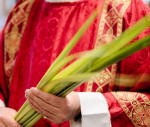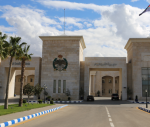You are here
Of no concern for policy makers in the West
Dec 17,2014 - Last updated at Dec 17,2014
In the run-up to Christmas, senior Christian and Muslim figures have called on the Christians of this region, home to all three Abrahamic faiths, to stay on in spite of the violence perpetrated by the Islamic State (IS), Jabhat Al Nusra and other extremists against all who do not accept their politico-religious ideology and practice.
Among the prelates are Pope Francis, Al Azhar rector Ahmad Al Tayeb, Greek Orthodox Patriarch of Antioch John X Yazigi, and Archbishop of Canterbury Justin Welby.
These clerics fear that most of the Christians may emigrate, leaving the region devoid of one of its oldest faith communities.
Jordan and Lebanon are two countries where there are substantial Christian communities that live without fear and carry on normally.
Furthermore, both have accepted an influx of Christians from Syria and Iraq. These Christians identify deeply with their home countries and are determined to remain in the region and return to their home cities.
Jordan is estimated to have 174,000-390,000 Christians out of a total population of 6.5 million; Lebanon, 1.35-1.5 million Christians out of 4.3 million; Syria, 1-2.3 million out of 22 million; Iraq, 500,000 out of 31 million; the occupied Palestinian territories, 40-50,000 out of 3.8-4.4 million; and Israel, 144,000-196,000 out of 7.8 million.
After the 2003 US invasion and occupation of Iraq, this latter’s one million strong Christian community shrank by 50 per cent.
Since the seizure of the northern Iraqi city of Mosul by IS fighters in June, at least 160,000 Christians have fled or were driven from that city.
They were ordered by the conquerors to convert to their extremist cult, pay a heavy tax, or leave.
Those who remained and stayed true to their faith were banned from displaying the cross and organising activities outside their churches. Women were compelled to adopt the niqab and remain at home.
Failing to opt for any of the three alternatives meant execution and expropriation of property by IS.
Most left, the majority for the Kurdish autonomous region of Iraq, which is near Mosul.
Some 4,000 settled in Jordan where they were granted visas and the Catholic charity and Jordan’s churches said they would assume responsibility for the refugees’ immediate needs.
Several thousand also went to Lebanon, many settling in the Christian mountain towns and villages north and northeast of Beirut, where they have been aided by local churches.
Christian refugees have been welcomed because Jordan and Lebanon remain secular countries where all faiths are respected and their presence valued.
Syria was also a secular, multi-sect, multi-ethnic country until late 2012-early 2013 when radical jihadists began to import foreign fighters, absorb militants from rebel groups deemed “moderate” and seize territory.
Their conquest of the north-central city of Raqqa and of the province of Deir Al Zour dislodged thousands of Syrian Christians while fighting in and around Aleppo, Syria’s largest city, decimated the Arab and Armenian Christian communities.
It is estimated that out of 60,000 Armenians in Aleppo, some 25,000 still dwell in government-controlled neighbourhoods, although many families have lost their livelihoods and are braving harsh conditions, kidnappings, bombs and bullets.
Armenians living in the popular Syrian holiday town of Kassab, located near the coast and the Turkish border, were forced to flee in March this year by Jabhat Al Nusra, which, like IS, is determined to “cleanse” the country of Christians.
Jabhat also occupied, emptied and looted the Christian town of Maaloula, where Aramaic was still spoken, and wrecked its two ancient Christian convents.
Palestinian Christian citizens of Israel suffer land expropriation, discrimination and marginalisation.
Nazareth, the city where Jesus lived as a boy and young man, was the sole Palestinian Arab city to survive Israel’s 1948-49 war of establishment.
Haifa, Jaffa and West Jerusalem were largely emptied of Palestinians.
Nazareth’s Palestinian citizens lived for 20 years under military rule, squeezed into a limited area, while Upper Nazareth was reserved for Israeli Jews and granted privileged treatment to entice them to settle there.
Since the 1967 occupation of East Jerusalem, the West Bank and Gaza, many Christians have left for the US, Europe and Australia, which favour Christian over Muslim immigrants, thereby contributing to the departure of Christians from the region.
Today, Israel is targeting Bethlehem, Jesus’ birthplace, with the aim of encouraging Palestinian Christians to emigrate.
Gaza’s 400 Christian families (1,333 persons) shared the fate of Muslims during Israel’s brutal 50-day war on the coastal strip during last July and August.
Christians were among the 2,189 Gazans killed, 6,000 wounded and 100,000 left homeless by this campaign.
Several churches were damaged, others took in the displaced, whatever their faith.
Palestinian Arab and Armenian Christians living in East Jerusalem, particularly in the Old City, are under massive Israeli pressure to give up their property holdings and leave.
If nothing is done to halt the migration of Christians from their home countries and this region, the number in only the Levant could be halved. Churches, monasteries, Christian monuments, and ancient traditions could be turned into museums, abandoned, fall into neglect, or destroyed, as they were in Maaloula.
Until IS seized Mosul, the post-Christian West showed little interest in the fate of Christians in this region, in spite of the fact that extremists argue that the West has launched a new Christian Crusade to occupy and subdue the majority Muslim Eastern Arab World.
It is true that the Western powers are becoming increasingly involved and assertive in this region, the strategic bridge between Europe and Asia and Europe and Africa. But these powers have no intention of imposing direct occupation, as did the Crusaders of Europe’s middle ages.
Modern day governments seek bases for power projection, economic benefit and political control. What happens to minorities — even fellow Christians in the struggle between extremist jihadists and interlopers — does not concern policy makers in Washington, London or Paris.













